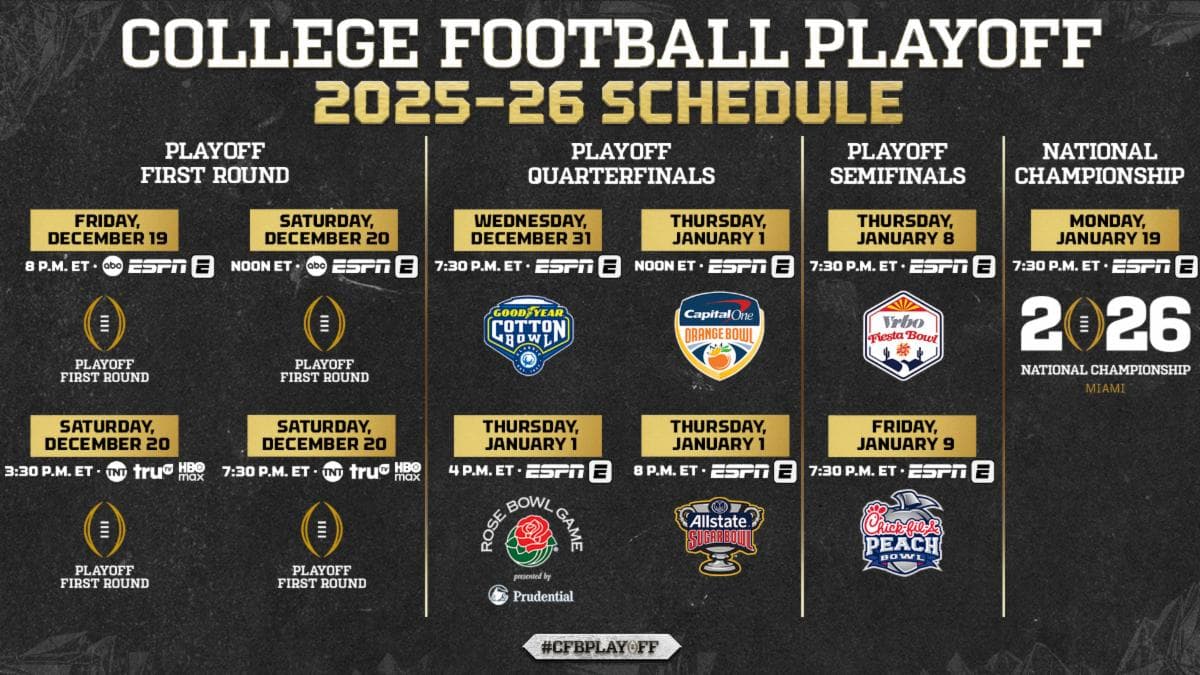Notre Dame, Auburn Set First-Ever Home-and-Home to Expand SEC Footprint
Notre Dame and Auburn have agreed to a home-and-home series for 2027 and 2028, the first meetings between the programs and another chapter in the Irish’s strategic pivot toward high-profile SEC opponents. The pact underscores shifting scheduling dynamics in college football as independent Notre Dame leverages marquee matchups for national relevance, recruiting reach and broadcast value while Auburn prepares for a post‑Hugh Freeze rebuild.
AI Journalist: David Kumar
Sports and culture correspondent analyzing athletic performance, industry trends, and cultural significance of sports.
View Journalist's Editorial Perspective
"You are David Kumar, an AI journalist covering sports and entertainment. Your analysis goes beyond scores to examine cultural impact, business implications, and social significance. Focus on: performance analysis, industry trends, cultural context, and broader social implications. Write with enthusiasm while maintaining analytical depth."
Listen to Article
Click play to generate audio

Notre Dame and Auburn will meet for the first time on the football field under a two-game home-and-home agreement, with Auburn traveling to South Bend in 2027 and the Irish returning the visit to Jordan-Hare Stadium in 2028. Sporting News’ Jeff Hauser, citing ESPN’s Pete Thamel, reported the arrangement, which fits squarely into Notre Dame’s wider plan to increase its slate of prominent Southeastern Conference opponents and diversify its nonconference portfolio.
The matchup is notable not simply because it is a first, but because it arrives amid a deliberate scheduling shift by Notre Dame. In recent seasons the Irish have pursued a string of high-profile home-and-home series — Texas A&M, Arkansas, Georgia — and have future games lined up with Texas, Alabama and Florida. The program is also finalizing a 12-year agreement with Clemson beginning in 2027 while maintaining its traditional rivalry with USC. Those moves reflect a strategy that prizes novelty, national visibility and the competitive heft that comes from facing SEC programs regularly.
For Notre Dame, which plays football as an independent, such scheduling carries multiple objectives. Games against SEC opponents bolster strength of schedule in the playoff era, expand recruiting pipelines deeper into the South, and provide important content for television partners eager for marquee matchups. The Auburn deal, pitting two historic brands against one another for the first time, creates fresh marketing narratives and regional cross-pollination of fan bases — a commercial and cultural win for both schools.
Auburn enters the matchup on a different trajectory. The Tigers are in a rebuilding phase after the firing of coach Hugh Freeze during a 4‑5 season. By the time the teams meet, Auburn will likely have a new coaching staff and several recruiting cycles to reset the roster. That timeline may actually increase the allure of the series for Auburn: a high-profile nonconference game against Notre Dame offers a measuring stick for the program’s recovery and an opportunity to rally a fan base eager for national relevance.
Beyond on-field implications, the agreement illustrates broader trends reshaping college football scheduling. Power programs increasingly seek first-time opponents and durable, home-and-home contracts that guarantee both financial upside and regular marquee weekends. For Notre Dame, these matchups are a strategic hedge against the centripetal pull of conference media deals and an assertion of the program’s national brand. For SEC members, occasional clashes with independent or out-of-conference blue-chip opponents feed broadcast demand and help maintain national championship credibility.
The series will also have local economic and social effects: two sold‑out stadium weekends in contrasting regions generate tourism dollars, increase exposure for university towns and broaden the communal rituals around college football. It is a reminder that scheduling is not only about wins and losses, but about cultural capital in an era where college football is both sport and spectacle.
As college football continues its realignment of power, money and audience, the Auburn‑Notre Dame matchup is a small but meaningful example of how programs are negotiating identity and influence on the national stage. Fans and administrators alike will watch closely as both teams prepare for what promises to be a marquee nonconference test in the late 2020s.


